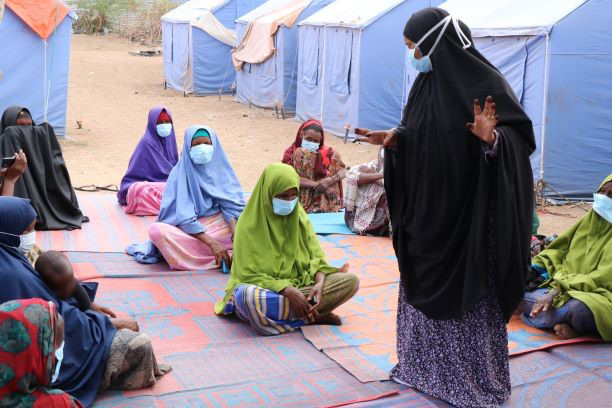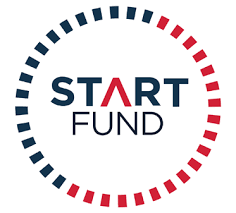Persistent heavy rainfall in Somalia has caused extreme flooding in areas along the Shabelle and Juba rivers, devastating local populations and causing many to lose their homes and livelihoods.
ACTED worked with Somali Save Women and Children (SSWC) to provide both Psychosocial support and ensure those affected had access to key hygiene items to help them live in dignity as they recover from the floods.
Supporting communities in the recovery from shocks
“I was devastated when I lost my job, my home, and even the clothes of my children,” said Fadumo a mother of six children and resident of a local IDP camp.
ACTED provided Psychosocial support sessions as a means to help flood-affected families like Fadumo ’s cope with the potential trauma of the flooding; the focus of this treatment being to support the emotional wellbeing and resilience of those who participate.
ACTED sessions included group therapy sessions, community support sessions, and child friendly therapy sessions, all of which were conducted by a mobile team, able to reach the affected communities across a wide area.
Background on Psychosocial Support
Psychosocial support can take the form of both preventive and curative treatment:
- In its preventative form it can help decreases the risk of a person developing mental health problems.
- In its curative form, it can help individuals and communities overcome and deal with psychosocial problems that may originate from the shock and effects of crises.

The psychosocial support sessions have had a positive impact, as revealed by observations and follow up sessions:
“The therapy sessions that I have attended have impacted my life for the better, as well as the life of family. They have really improved our well-being,” said Mohamed, a farmer and father of two children.
Mohamed also said how the floods had arrived without warning, meaning families had had no time to save their belongings: “The floods caught us off guard and we lost all our things, including the cart I used for work. I had to take my wife and two children to a camp,” said Mohamed.
Responding to immediate needs
In the Shabelle River, water levels continue to rise, causing the number of displaced families to mount across the region. According to the Floods Task Force, an estimated 15,000 people were displaced from their homes in neighboring villages.
The significance of basic items such as a light or hygiene items cannot be overestimated for families who are suddenly forced to flee from their homes into extremely basic living conditions. IDP camps, especially newly established ones, often lack basic supplies, thus it is crucial for agencies like ACTED and the SSWC to fill these gaps. The absence of lights is particularly sensitive given how unlit areas of camps are more likely to see cases of gender-based violence.
ACTED and SSWC thus provided over 700 solar lamps across 28 flood-affected IDP camps and dignity kits to over 700 women and girls.
Dignity kits contain hygiene and sanitary items, as well as other items explicitly tailored towards the local women’s needs
It is such a great feeling to have light in your house, I have been living in the dark since the floods hit us, now we feel safer and can move freely at night. Also the dignity kit provided us with clothing for which we are grateful.
With the funding from the Start Fund, ACTED and SSWC facilitated psychosocial support sessions for over 1500 individuals, and distributed 770 solar lamps and dignity kits.
